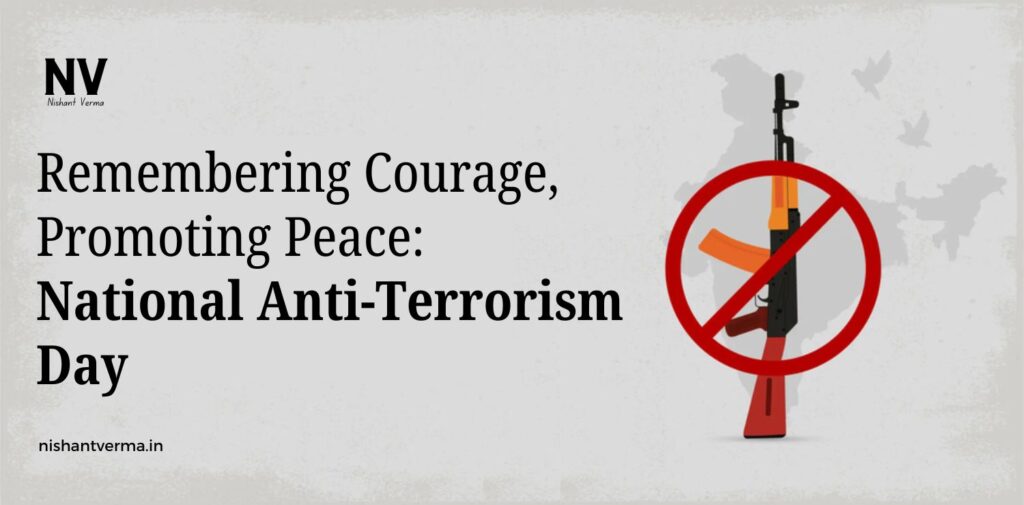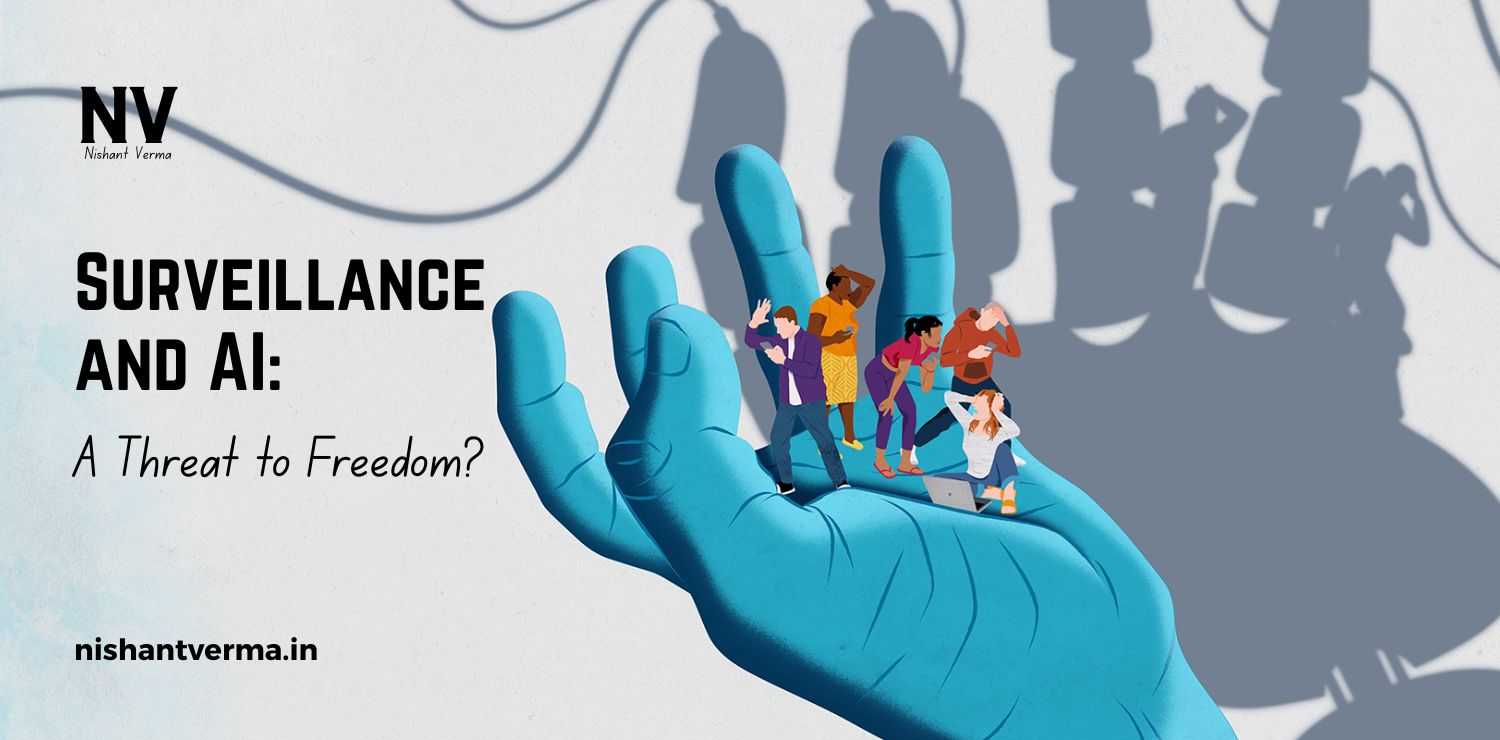Every year, on the 21st of May, India observes National Anti-Terrorism Day to honour the lives lost to terrorism and to promote the values of peace, unity, and humanity. This day is a reminder of the dangers of terrorism and the importance of standing united against all forms of violence and hatred. The observance holds a special place in the hearts of Indians, as it marks the death anniversary of former Prime Minister Rajiv Gandhi, who was assassinated by a terrorist attack in 1991.
National Anti-Terrorism Day is not just a day of remembrance, but also a moment to reflect on the importance of national security and the role of every citizen in maintaining harmony. Schools, colleges, offices, and government institutions take part in spreading awareness about the destructive effects of terrorism and how we, as a society, can counter it by promoting peace and cooperation.
Why National Anti-Terrorism Day is Observed
The tragic assassination of Rajiv Gandhi in 1991 by a suicide bomber from the Liberation Tigers of Tamil Eelam (LTTE) was a dark moment in Indian history. In memory of his contribution to the country and to spread the message of peace, the Indian government decided to observe 21st May as National Anti-Terrorism Day.
This day is observed with the primary aim of educating people about the impact of terrorism and encouraging them to reject violence. Terrorism not only causes loss of life and property but also spreads fear, disrupts lives, and weakens the nation’s social fabric. National Anti-Terrorism Day reminds us that terrorism, in any form, is a threat to humanity and that we must remain vigilant and united in our response.
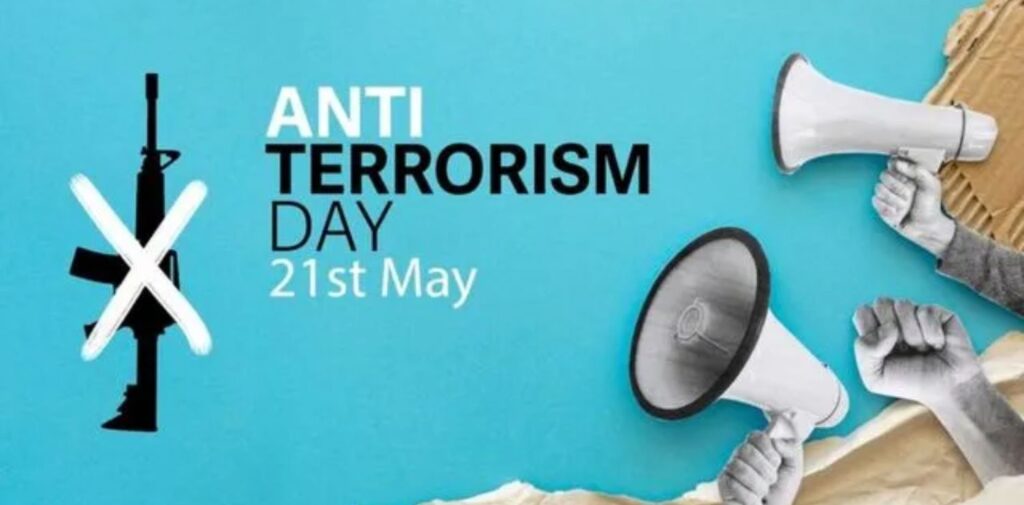
Significance of the Day in Today’s Time
In today’s world, terrorism has taken new shapes. With the rise of digital technology, cyber terrorism and online radicalization have become new challenges. Terrorist groups are using social media and other online platforms to spread hatred, misinformation, and violent ideologies. This makes the observance of National Anti-Terrorism Day even more relevant in the current era.
The day helps raise awareness among people, especially the youth, about how these elements operate and how to avoid being influenced by them. It also encourages people to report suspicious activities and take a proactive role in protecting the country. Moreover, it serves as a day of solidarity for all the families and individuals who have suffered due to terrorist attacks, both in India and across the world.
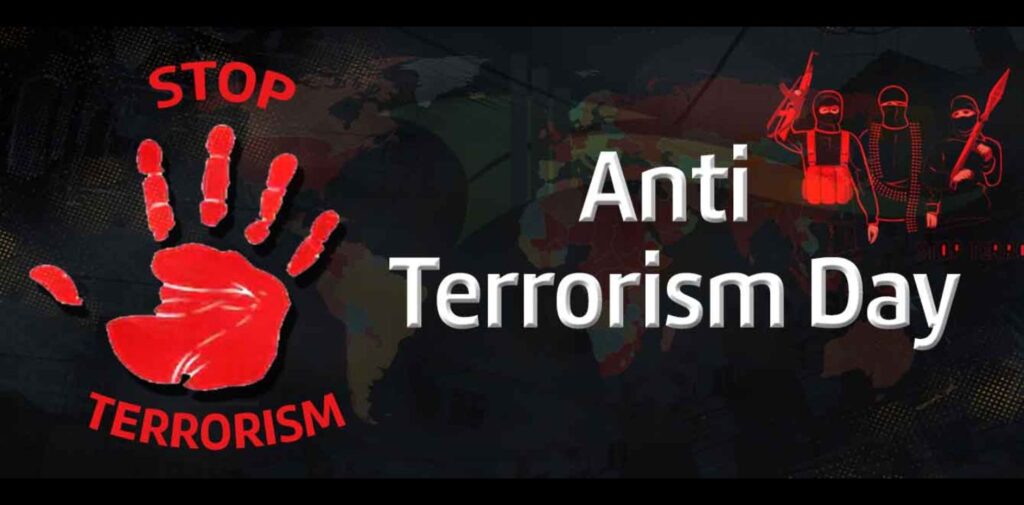
How India Observes National Anti-Terrorism Day
Various activities and programs are organised on this day across the country. Educational institutions conduct debates, essays, and poster-making competitions to spread awareness. Seminars and discussions are held to highlight the causes and effects of terrorism. Government officials and public servants take an anti-terrorism pledge, which includes a promise to uphold and promote peace, unity, and human dignity.
In many places, people also observe a moment of silence to pay tribute to the victims of terrorism. Media channels and newspapers run special reports and stories to educate the masses about the impact of terrorism on society. Police and security agencies often use this occasion to showcase their efforts and preparedness in combating terrorism.
All these efforts aim to spread the message that terrorism can never be a solution and that violence only leads to more suffering. The observance of National Anti-Terrorism Day reminds us that the path to a peaceful and prosperous future lies in mutual respect and non-violence.
Role of Citizens in Fighting Terrorism
While the government and security forces have the responsibility to protect the nation, citizens also play a crucial role in the fight against terrorism. Awareness and alertness among the public are vital in identifying and preventing potential threats. If you see something unusual or suspicious in your surroundings, reporting it to the authorities can help prevent possible dangers.
Young people, in particular, need to be careful about the kind of content they consume online. It is easy to fall into the trap of fake news or extremist ideologies if one is not cautious. This is why educational programs that promote critical thinking and digital literacy are essential. Parents, teachers, and community leaders must guide young minds and help them understand the value of peace and respect for others.
Small actions, like promoting religious harmony, being tolerant of different views, and standing against hatred, can make a big difference. By being responsible and united, we can build a safer and more inclusive society.
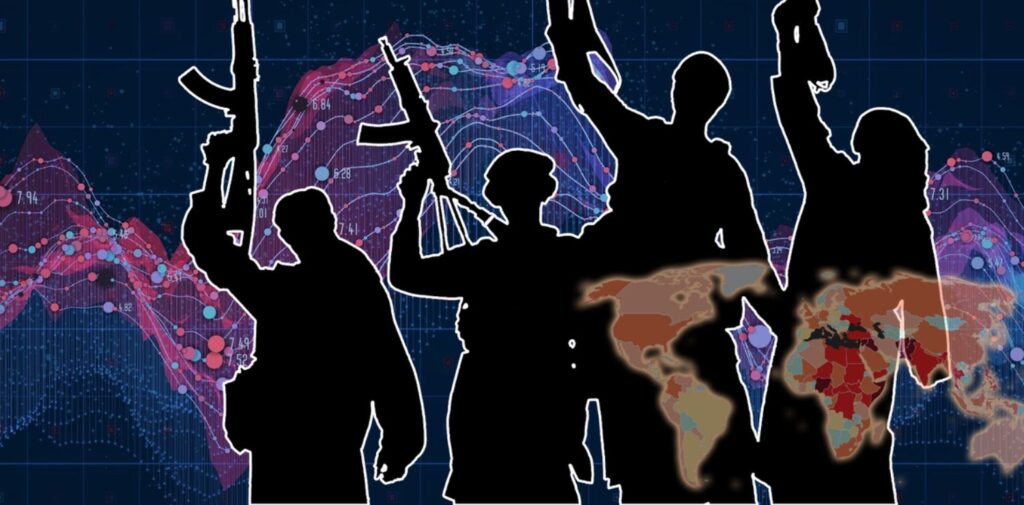
Lessons from the Past and the Way Forward
India has faced several terrorist attacks over the years – from the 2001 Parliament attack to the 2008 Mumbai attacks. These incidents have taught us the importance of staying alert and resilient. Our armed forces, intelligence agencies, and law enforcement officers work round the clock to ensure our safety, often at the cost of their own lives.
However, the battle against terrorism is not just on the borders or in the cities; it begins in our homes, schools, and communities. It begins by rejecting hate and choosing compassion, by understanding instead of judging, and by educating instead of blaming.
Moving forward, it is essential that the message of peace and tolerance reaches every corner of the country. Social media can be a powerful tool in spreading positivity if used correctly. Campaigns, short films, stories of victims and heroes, and community programs can help spread awareness and bring people together.
The youth should be encouraged to participate in peace-building activities and understand their role as future leaders. Our future lies in the hands of those who believe in dialogue over violence and cooperation over conflict.
Conclusion
National Anti-Terrorism Day is a day of reflection, remembrance, and resolve. It reminds us of the heavy cost of terrorism and the importance of standing together as a nation. By spreading awareness, staying alert, and promoting peace in our daily lives, we can contribute to a safer and better India.
As we observe this important day, let us honour the memories of those who lost their lives to terrorism and pledge to build a country where peace, unity, and justice prevail. Terrorism may try to break us, but our collective spirit and love for the country will always be stronger.

